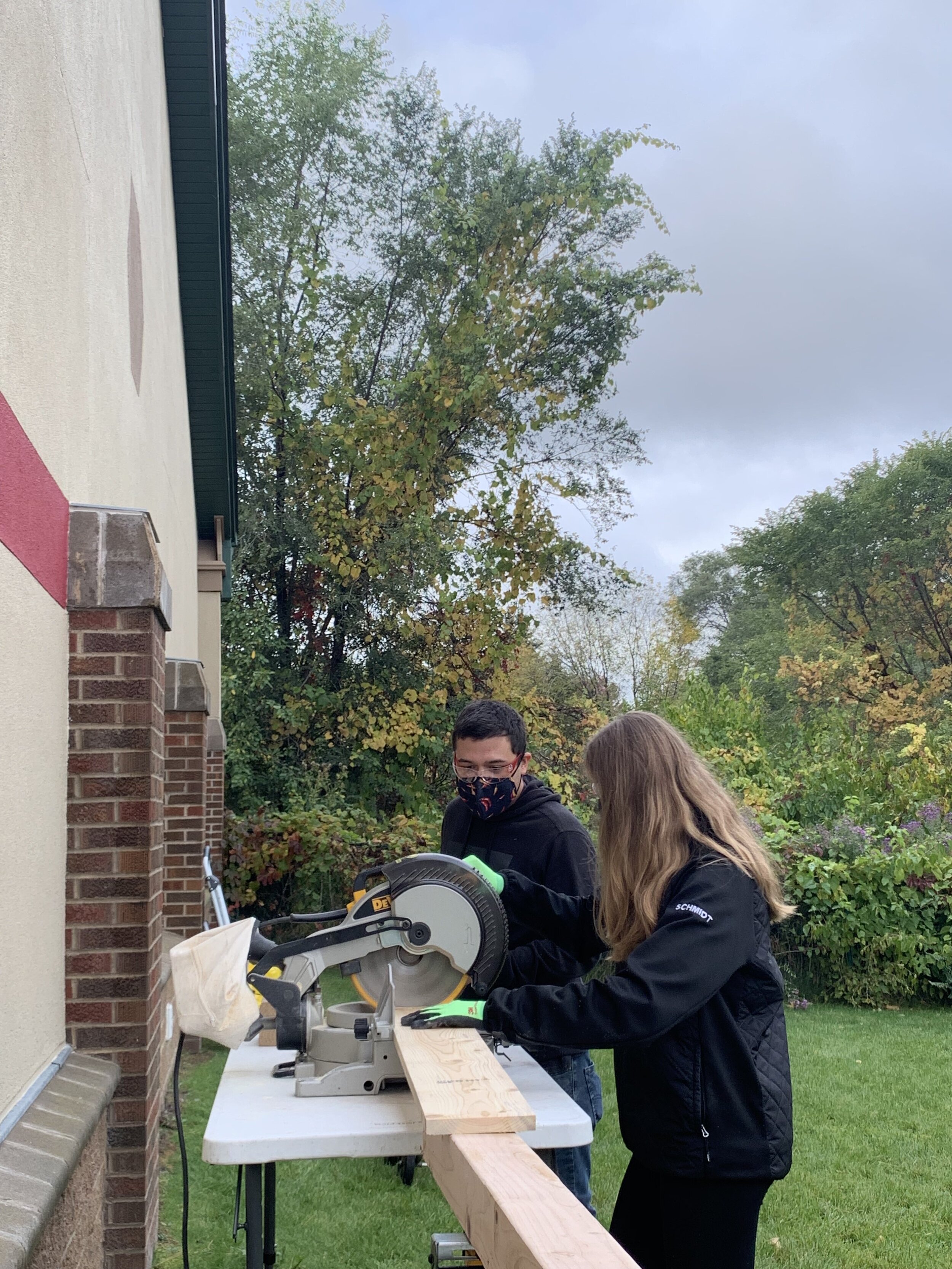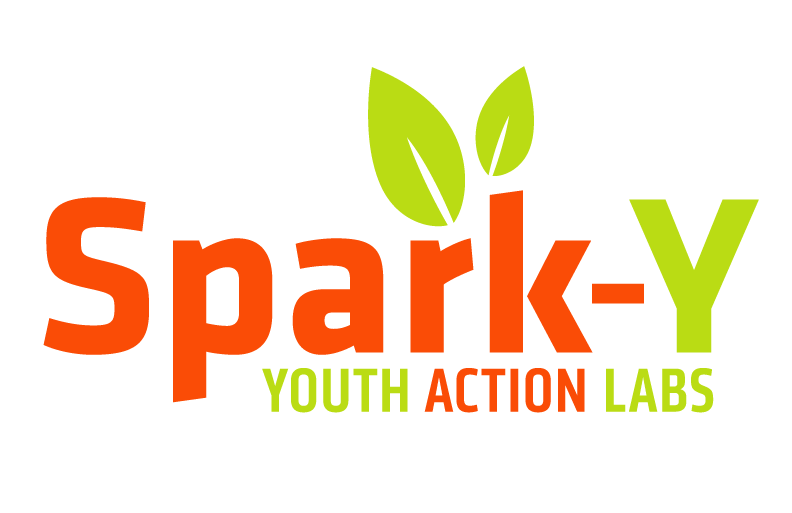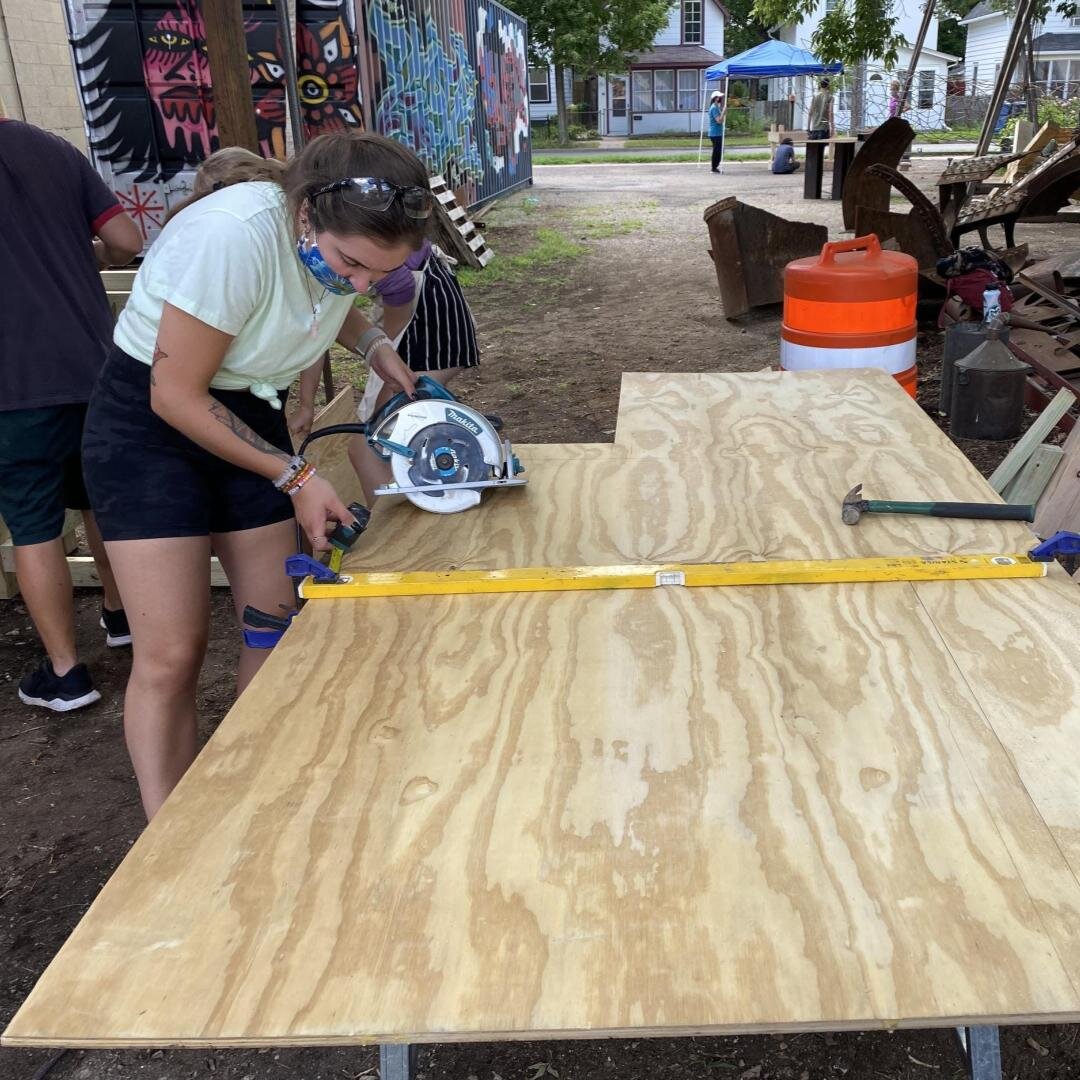At Spark-Y, we are working with our partners to collectively navigate distance-learning, and at the same time, we recognize the importance of hands-on learning activities that engage the hearts, hands, and minds of young people. With Oak Hill Montessori School returning to in-person learning, we were able to partner with them to give students hands-on experience learning about sustainability and power tools while creating their very own aquaponic system. After creating this system, they will now be able to take care of fish and grow plants right at the school! Of course, all Covid-19 precautions were put into place during this build in order to make this happen as safely as possible. The build was outside, masks were required, and students rotated to stations in small groups.
Why do we love building aquaponic systems you may ask? Well, it's a great tool to teach concepts such as sustainability, biology, chemistry, math, and much more. Aquaponic systems facilitate a symbiotic relationship between fish and plants. Fish waste adds ammonia to the system. Bacteria then converts the ammonia into nitrites and then nitrates. Plants use nitrates to create proteins for growth, and in return the fish get clean water. It’s an incredible way to grow fresh produce all year long!
Now that we got the biology lesson out of the way, let’s talk about why hands-on learning is so important. First of all, it's fun and engaging. I don't know about you but when I was sitting for a school lecture I often found myself day-dreaming and not soaking in a lot of the information. It is so important to facilitate learning with several senses at once. Young people need room to tinker, make mistakes, and try again. Particularly in the era of Covid, it is important to keep students from getting screen fatigue by adding some hands-on learning opportunities into their curriculum.
Of course, the students at Oak Hill were excited to not only be away from their screens doing hands-on learning, but also to be outside and using tools. They rotated to three stations throughout the day for the build. One station measured dimensions of the wood planks for the tank, another cut the wood, and the last station assembled the aquaponic tank.



While assembling the system, one student, Saphira, said, “I’m excited to have fish we can take care of in our own garden. I am grateful for Spark-Y because we get to have hands-on experience during Covid instead of just studying. It makes school so much more fun.”
Throughout this process, the students had lots of energy because they were so excited about the project. While we love the enthusiasm, I also made the point that in construction projects like this one, efficiency is key. I told them, "if you're not paying attention, you're not being efficient and potentially creating an unsafe environment for your team." To my surprise the students really resonated with that, and one student even started calling out to other students, "that's not efficiency!" whenever other students were goofing around. As time went on more students were yelling, "efficiency!" when they completed a certain task. I really got a kick out of this because in my professional experience my bosses have always harped about efficiency. This is something that was encouraged but never taught in school. This is why hands-on learning is so important to me and many others. Without it we miss the nuances between practice and theory. The aquaponics build was truly a great way for students at Oak Hill to take a break from the screen and learn about aquaponics and sustainability.
Students at Oak Hill Montessori school now have their very own aquaponic system where they can grow produce right at the school. They can now work together to care for their system and continue hands-on learning during Covid and beyond!
Written by Ryland Sorensen - Spark-Y Sustainability Educator



























